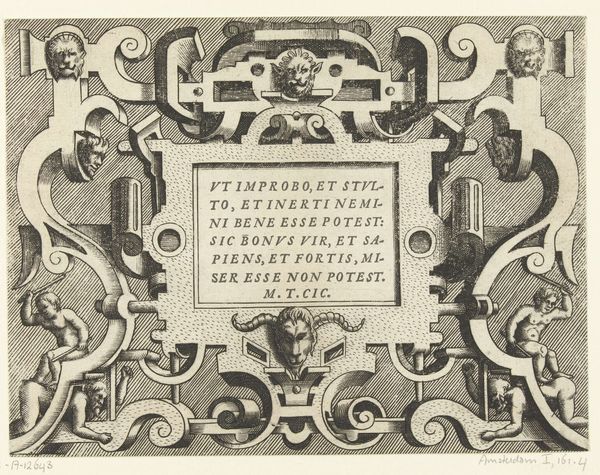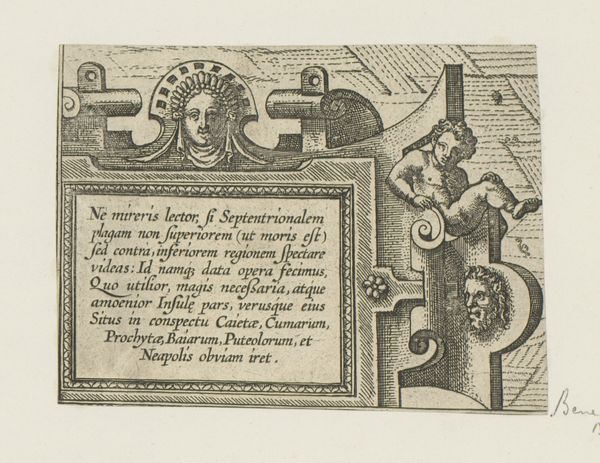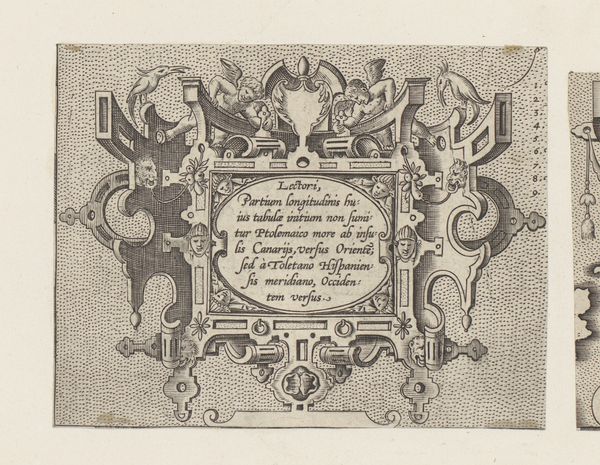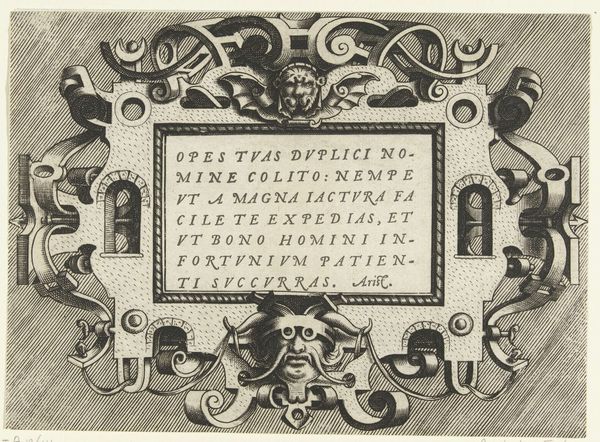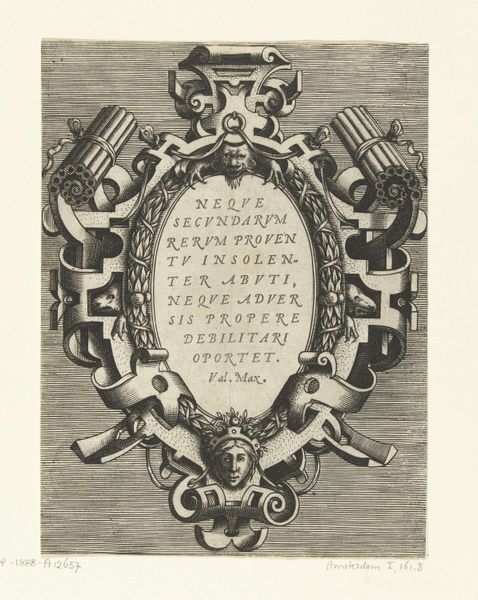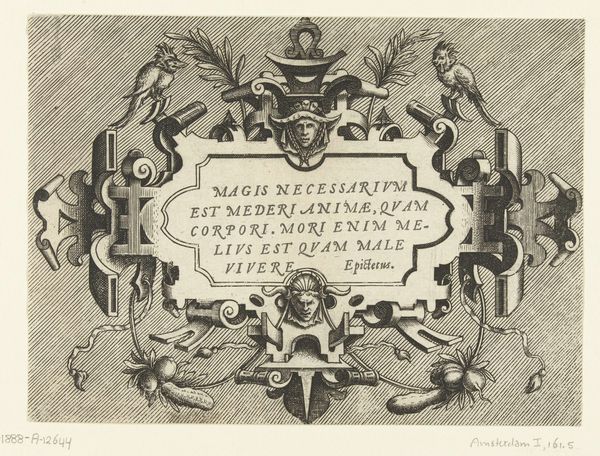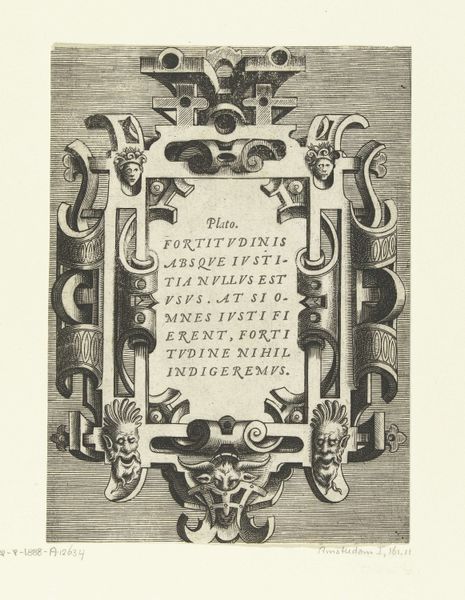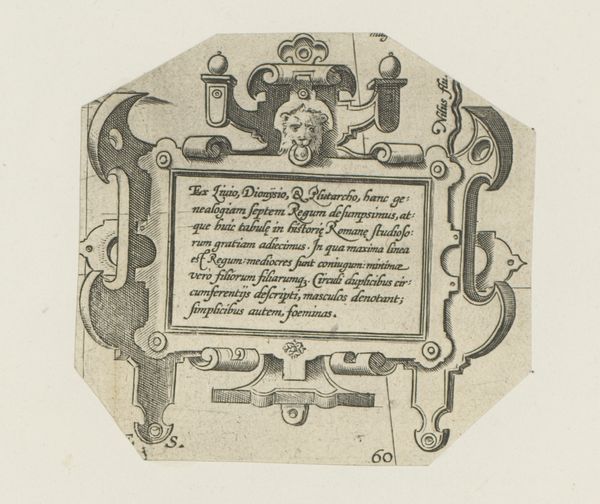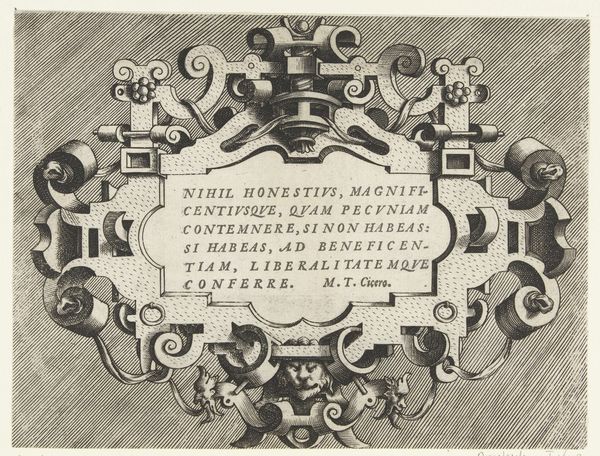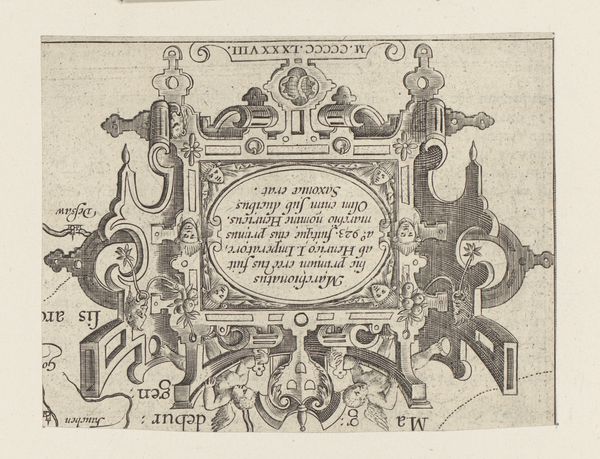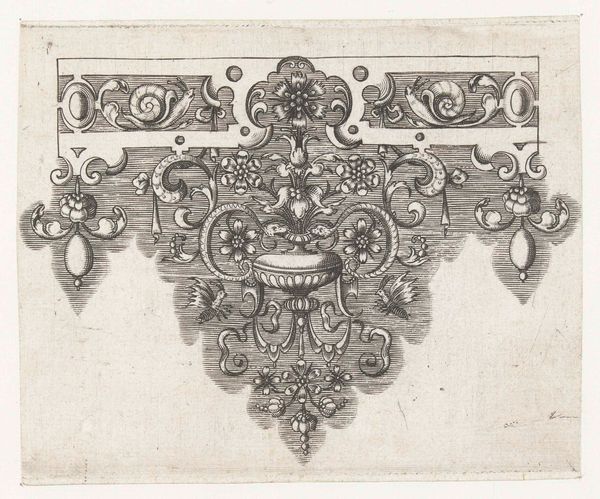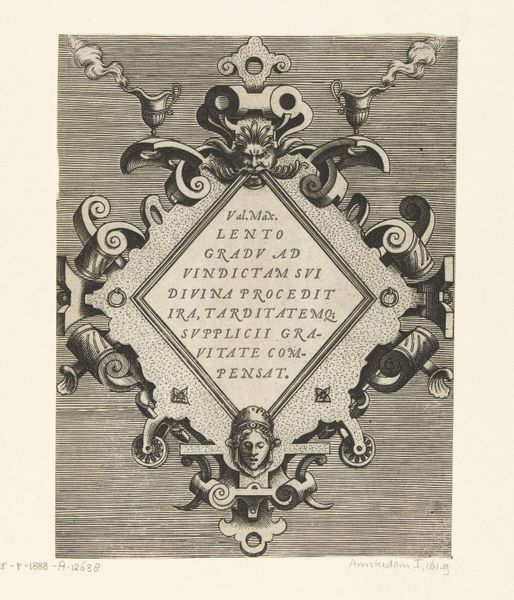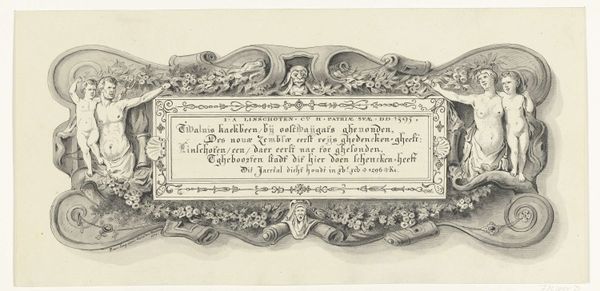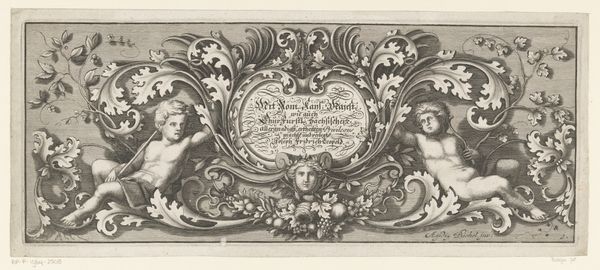
drawing, print, etching, paper, ink, engraving
#
drawing
#
pen drawing
# print
#
etching
#
paper
#
11_renaissance
#
ink
#
line
#
northern-renaissance
#
engraving
#
calligraphy
Dimensions: height 116 mm, width 169 mm
Copyright: Rijks Museum: Open Domain
Editor: This is "Cartouche met een citaat van Seneca," dating from around 1553. It's an anonymous engraving and etching. It looks like a formal inscription. How do you interpret this work, with its austere, framed lettering? Curator: This piece operates on several levels. First, consider the cartouche itself. As a framing device, it elevates the text, imbuing it with authority. In Seneca's time and even more so during the Renaissance, quotations from classical writers conveyed wisdom and moral guidance, especially for the educated elite. Do you notice the faces ornamenting the frame? What impression do they give? Editor: They seem like dramatic masks...sort of severe. They contrast with the quote. Curator: Exactly. There’s a tension between the text's stoic message and the ornamentation, revealing anxieties and moral questions bubbling beneath the surface. The text is about time, which implies both power and potential squandered. In the mid-16th century, the rising merchant class and political tensions caused immense social change. Seneca's words would likely encourage viewers to resist corrupting influences and lead lives of virtue. Does that framing shift how you see the quote and image? Editor: Definitely. I originally saw it as a fancy bit of calligraphy, but now it seems like a call to action! Curator: Precisely! It is also worthwhile noting that "Seneca" wasn't always inclusive and equitable and those historical factors influence my reception, but yes. It underscores the vital role that art plays in critiquing and commenting on contemporary life.
Comments
No comments
Be the first to comment and join the conversation on the ultimate creative platform.
